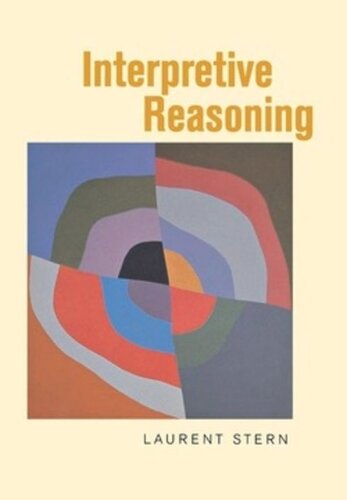

Most ebook files are in PDF format, so you can easily read them using various software such as Foxit Reader or directly on the Google Chrome browser.
Some ebook files are released by publishers in other formats such as .awz, .mobi, .epub, .fb2, etc. You may need to install specific software to read these formats on mobile/PC, such as Calibre.
Please read the tutorial at this link: https://ebookbell.com/faq
We offer FREE conversion to the popular formats you request; however, this may take some time. Therefore, right after payment, please email us, and we will try to provide the service as quickly as possible.
For some exceptional file formats or broken links (if any), please refrain from opening any disputes. Instead, email us first, and we will try to assist within a maximum of 6 hours.
EbookBell Team

4.4
102 reviewsLaurent Stern here provides a concise account of the difficulties that arise within the interpretive process and in the context of interpretive conflict. Speakers and agents are expected by others to be occasionally insincere. Attempting to be tolerant of alternative interpretations, and dealing with the insincerity of others, often motivates interpreters themselves to become insincere. Accordingly, moral issues emerge for both speakers and interpreters. Interpretive Reasoning discusses such issues in the literature on interpretation.Stern offers a carefully argued account of the very idea of interpretation. What are the constraints on interpretations? What are our grounds for demanding that others agree with our interpretations? How do we support our interpretations? What are the types of interpretations we encounter? How are problems of first-person authority and self-knowledge connected with interpreting? While the author argues for interpretations supported by principles rather than by the consensus of interpreters, he also shows that even well-supported interpretations may be mistaken, and that some interpretive conflicts are interminable. Although this is a book in philosophy, scholars and students in the humanities, the social sciences, and disciplines concerned with interpretive reasoning can read it profitably.